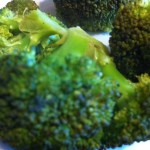We all need fibre to help our bowels work efficiently. There are two main types: soluble and insoluble fibre. Soluble fibre dissolves and forms a sponge like soft gel which swells and works gently through the intestines. Examples of soluble fibre are fruits, some vegetables, beans and oats. Insoluble fibres act more like a broom, sweeping through the intestines and are generally grains, such as wheat, nuts and skins of fruits and vegetables. In addition we need adquate water especially for soluble fibre to soften and swell.
We also need to be relaxed. You will notice that if you are stressed or anxious the body can ‘hold on’ for some time. Magnesium is helpful for relaxation (see below).
Over the counter laxatives often irritate the body, so don’t ignore nature’s laxatives which work in harmony with your body, providing valuable nutrients too:
- Avocados are high in fibre and nutrients, yes they are high in fat but it is good monosaturate fat which helps LDL cholesterol as well as skin friendly antioxidant, vitamin E.
- Bananas are higher in starch than other fruits but still better than chocolate! They help prevent constipation, and very ripe bananas are good for diarrhoea
- Figs – fresh are best but dried are good in moderation. Both are a source of calcium
- Prunes – who hasn’t been fed prunes as a child when you couldn’t go?? Prunes can be helpful for constipation, but be careful as the dried ones are high in fructose, and the canned ones are sometimes in syrup
- Berries – strawberries, blueberries, blackberries – all are high in fibre, vitamin C and low in calories, perfect for adding to live natural yoghurt. Picking your own is good fun
- Oranges – the flesh from oranges is high in soluble fibre and rich in vitamin C. Much better than pure juice which releases too much fructose too quickly
- Broccoli is high in fibre and vitamins A, C and K, and folate which are great for bones and healthy foetal development. It also contains detoxifying compounds which aid the liver in excreting toxins and benefit the bowel.
- Cabbage, Brussels, cauliflower and other brassicas do a similar job
- Linseeds / flaxseeds (they’re same thing) – these swell gently with liquid for form a soft gel that passes through the body lubricating the passage of waste. Add a spoon to cereal, porridge or cakes
- Sauerkraut – fermented cabbage (sold in jars in major supermarkets such as Waitrose). This helps boost friendly bacteria and is high in fibre, low in calories, great with salads or oily fish. Tastes better than it sounds!
- Live natural yoghurt – another source of friendly bacteria which help break down food and normalise stools.
Finally for those with stubborn constipation, you may be lacking magnesium which relaxes tightness and spasms in the bowel – 200 mg x 2 a day can be helpful. Medical attention should be sought for persistent constipation that doesn’t respond to dietary changes, especially if there is pain or blood in the stool.




